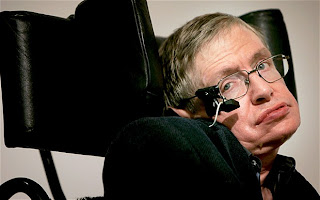We don’t let animals suffer says Prof Stephen Hawking as he backs assisted suicide
 |
| We don’t let animals suffer says Prof Stephen Hawking as he backs assisted suicide |
In an interview he said he believed those who helped loved ones die should escape prosecution if they were suffering from a terminal illness and in pain.
It is a criminal offence in the UK to encourage or assist someone to take their own life but guidance, issued by the Department of Public Prosecutions in 2010, makes it clear that friends or family members are unlikely to be prosecuted for assisting a loved one’s suicide.
However campaigners have called for greater clarity in the law. Prof Hawking said: “I think those who have a terminal illness and are in great pain should have the right to chose to end their own life and those that help them should be free from prosecution."
But there must be safeguards that the person concerned genuinely wants to end their life and they are not being pressurised into it or have it done without their knowledge and consent, as would have been the case with me,” he added, referring to an incident in 1985 when he was placed on a life support machine.
It followed a bout of pneumonia and his first wife, Jane Hawking, was given the option to switch of the machine.
But she refused and insisted he was flown back to Cambridge from Geneva where he recovered and went on to complete his popular science book, A Brief History of Time, which sold more than 10 million copies worldwide.
In an interview with the BBC ahead of the release of a documentary about his life, Prof Hawking also spoke about why he decided to make the film.
It features interviews with Buzz Aldrin, the astronaut, his sister and his first wife, whom he divorced in 1995. He went on to marry Elaine Mason, one of his former nurses.
The father-of-three, who was given just three years to live when he was diagnosed with his condition aged 21, said the film was “a journey in science” designed to give hope to those with disabilities.
“If one is disabled, one should concentrate on the things one can do and not regret the things one cannot do,” he said, adding how he felt his own disability had helped his scientific career.
“In fact, my disability has been a help in a way, it has freed me from teaching or sitting on boring committees and given me more time to think and do research.
“Theoretical physics is one of the few fields in which being disabled is no handicap - it is all in the mind.”
Prof Hawking, who works everyday at Cambridge University, has lost the use of almost all of his muscles but is able to speak using a muscle in his cheek, which has remained strong because the nerve connecting it to the brain is short.
The movement of his cheek muscle is then detected by a sensor on his glasses, which are linked to a programme on a tablet computer which allows him to speak through a voice synthesizer.
Prof Hawking also spoke about his fears for the future of the human race. He said people were in danger of destroying the planet though “our own greed and stupidity” and said the only way to secure long-term survival was to find ways to live in space.